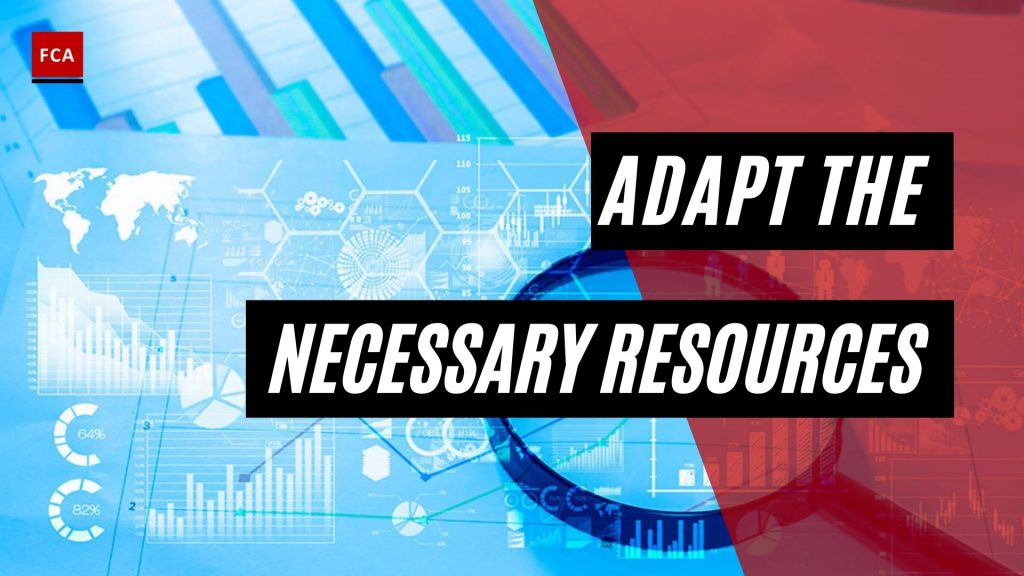Adapt the necessary resources. A specialized, well-organized, and sensible approach in line with the relevant legal framework is essential. If a company has not invested fully in the development of its resources in this respect, it is recommended to consult with multiple external experts who can support the company in the execution of complex internal investigations.

Adapt The Necessary Resources
Where a small team of highly qualified legal analysts and alternative providers deliver work that can be standardized, accuracy can only be significantly improved and costs substantially reduced if the coordinating law firm (ideally along with the other firms involved) uses decisive and experienced project managers to continuously command and adapt the investigative process when necessary.
In the era of big data, where gathering and analyzing information carries an excessively high price tag, efficient collaboration between different expert teams in a modular approach seems all the more advantageous. Most importantly, together with the company, the coordinating law firm should make a project plan, coordinate the investigation, and make sure that the relevant legal framework is observed accurately.
This needs considerably greater planning costs for law firms than the traditional model of project management. However, since processing information through document review is most of the time an intensive part of an investigation in terms of cost, time, and resources in the age of digital transformation, the efficiency gained by involving cheaper, more specialized providers considerably outweighs the increased planning and coordination costs to the firm as part of project management.
Data Analysis In The Age Of Digital Transformation
When processing information over the course of an internal investigation, one of the most vital facets, apart from interviewing employees, is the analysis of internal company data (document review).
Legal And Organizational Challenges Of A Document Review
In planning document reviews, a suitable team of experienced analysts should be gathered, and the management board of the company should be consulted early in the process. The IT infrastructure and internal company rules should be analyzed and, if necessary, adapted. Data-protection experts should be integrated to guarantee data security. It is essential to determine if the provisions may be fashioned into data handling contracts when contracting with providers of forensic software and services and to ensure that the contractual offers provided by the vendor correspond with statutory requirements.
Big Data And Document Review
Today, the review of unstructured data in large volumes for the pre-emptive discovery of violations of the law is predominantly carried out through electronic forensic data analysis electronic discovery, or e-discovery. Using e-discovery software, even very large and complex volumes of data, such as emails and digital files, and audio recordings of conversations can be combed through with the help of a keyword search explicitly created for an investigation.
Even investigations by authorities are primarily carried out using e-discovery today. The authorities first request access to all the company’s servers, demand the surrender of digital storage media, and, if applicable, request access to any cloud infrastructure. These can accurately be referred to as e-raids.
However, the e-discovery process is very complex. It encompasses many different participants, interests, and legal problems, and there is no universal procedural standard.
In practice, the following basic steps have proved useful:
The company’s IT system should be analyzed to ascertain which data belongs to those under investigation (custodians), where and in which formats the information is saved, and how the sources can be accessed (data mapping). While saving the information, arrangements should be made to ensure the data cannot be deleted, manipulated, or reconstructed. To preserve digital evidence, it is crucial to extensively document the actions being performed.
To ensure the review is time-efficient and cost-effective, the volume of data must be appropriately reduced. For this purpose, the secured data (files, email records) should be examined and limited to data collected during the investigation period and preserved in the relevant document formats. It should then be reduced by up to 90% through a pre-examination procedure, and papers that are similar or substantially identical be removed.
The data set can be reduced even further by choosing keywords specific to the case that are then used as search terms in a linear document review. Given that this is crucial for the outcome of the investigation, the keywords must be broad enough to include as much potential misconduct as feasible while remaining targeted enough to pinpoint relevant data as accurately as possible. This keyword review separates relevant documents from irrelevant ones. Because there will be documents containing a search term but have nothing to do with the purpose of the review, there may still be many documents marked as relevant. Affected documents will then be rechecked in a second stage.
Until this point, the steps outlined essentially reflect the approach authorities use when handling data collected during a raid. To move faster than the authorities, technology-assisted review (TAR) can speed up manual document review by a considerable margin of up to 60 times. Additional features include, for example by the graphical display of communication lines and document summaries by topic.
The review ends with the export of the papers considered important and a report that evaluates these materials. This is the foundation of the broader strategic advice detailed here for or in defense of a company.
Importance Of Experienced Project Managers
Internal investigations today are time-consuming and require significant manpower. External service providers constitute the biggest proportion of the costs. The success of an e-discovery process greatly depends on the implementation of experienced, cutting-edge, and specialized project managers. As coordinators of the investigation and a nexus to the company management, these project managers are indispensable. They are responsible for time management, resourcing, and budget control, as well as ensuring that all processes operate smoothly and communication between all participants is effective. This entails establishing a transparent reporting system and a thorough recording of all steps and decisions taken.
Internal investigations and effective project management are not sufficient in and of themselves. It would be in a company’s best interests to investigate legal infractions but conduct its investigation in an efficient, appropriate, and reasonable manner. These interests must be considered by advisors as well.
The solution for efficient and reasonable performance of internal investigations is an innovative, modular approach that combines high-quality legal advice with new technologies to complete routine legal work. The key to the success of this approach lies in modern legal project management, which ensures that methods used by various legal service providers all comply with certain rules and takes care that those involved work together efficiently. This requires high planning and coordination costs, but these costs can be recouped many times over as a result of the improvement in efficiency in the investigative process, especially when using document review.
Final Thoughts
This approach offers companies not only time and cost benefits during the disruptive investigative process, but also transparency and clarity for planning, ultimately ensuring that an internal investigation will no longer become a confusing, bottomless pit.








